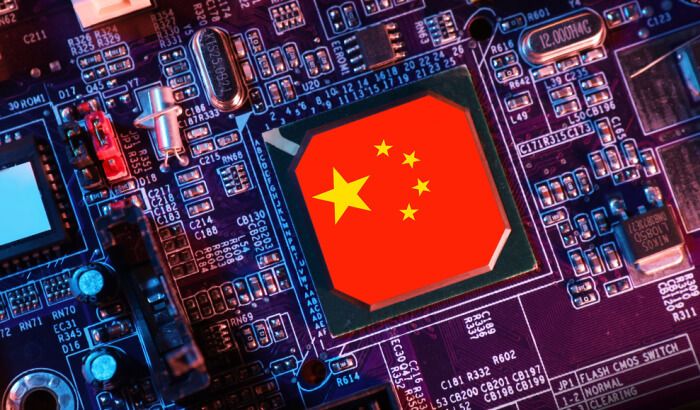
星期三 Aug 30 2023 10:33

5 最小

Across the economy, ‘AI’ is the magic word inspiring bulls to scrape their feet and charge in a frenzied scramble. They can only hope that they are not charging towards the red – if the time lag between capability and expectation is too elongated there is a distinct possibility that the hype cycle will stutter abruptly in a dot-com-esque crash. Nevertheless, technology heavy-hitters like Google, Microsoft, Meta, and Palantir are all staking their claims alongside numerous venture capital firms. But as the dust rises, there's an uncertainty: who will strike the gold, and who will be left empty-handed?
Historically, the frontrunners of such technological revolutions have been the companies with vast resources at their disposal, be it data, computing power, cloud services, or, in this case, AI expertise. Lina Khan, Chair of the Federal Trade Commission, has voiced concerns regarding the monopoly of these resources by a select few, warning of the potential for even further market consolidation from incumbent multinationals. Particularly when it comes to processing power, those without the right supply chains may find themselves without a paddle. Of course, this presents a competition issue but it is also something that investors will need to be cognisant of as they look for the next AI hidden gem.
Propelling AI to the forefront of the stock market this year, Nvidia and its recent astounding earnings announcement was enough to make a board room blush. The company's Q3 revenues reached an astonishing $13.5bn, shattering all expectations. Driven by the surging demand for AI, their revenues for the upcoming quarter are estimated at a whopping $16bn, marking a growth of 170%. The S&P 500's top performer this year, Nvidia's stock rose by 7.5%, adding about $87 billion in market value. The booming interest in artificial intelligence, especially following the introduction of OpenAI’s ChatGPT language-generation tool, has certainly made what feels like waves. However, it is very likely that these are merely ripples compared to the tsunamis to come. Businesses, both big and small, are recognizing the potential of AI and are channelling massive investments into computing infrastructure to harness its power.
As is often the case with the early stages of technology hype cycles, with valuations and investor confidence flying high, it may be difficult to temper expectations. One key consideration that will likely become an unavoidable stumbling block will be the rippling effects of China’s slowing economy. As the rest of the world struggles to temper inflationary pressures of a more robust post-pandemic consumer - China is battling with the opposite. Late August is seeing the superpower slip into deflationary territory for the first time since 2021. But what does this mean for AI and Nvidia’s bull run?
Unfortunately, Nvidia's ties with China represent a significant chunk of its data centre business and bring in a new dimension of risk that some may not be accounting for. The Biden administration's focus on curbing China's access to critical technologies might restrict the sale of Nvidia's high-end chips. Regarding the potential for harsher restrictions on China’s global supply chains Bloomberg warns of downside risk that could spread across the entirety of the world economy. With global banks adjusting China's GDP growth to below 5% and household consumption on a downtrend, the ramifications for companies heavily invested in China will likely be severe. Giants like Apple, Starbucks, and Walmart, all of whom have substantial business in China, might soon feel the heat as well. With China's current economic turbulence, there’s a bit of an alarm going off in the background while investors dream of AI moonshots – will they abruptly wake to a nightmare? As companies and investors navigate this landscape, strategy, foresight, and adaptability will dictate who strikes gold and who gets left behind.
Although the same names keep stealing the limelight, the race to AI dominance isn't just about one company. Morgan Stanley has spotlighted the strong fundamentals for other AI contenders too. Among these, is Taiwan Semiconductor Manufacturing Company (TSMC).
TSMC, dubbed ‘the world’s most important company that you’ve never heard of’ by Time magazine, is one of the largest and most advanced semiconductor manufacturing foundries in the world. They specialize in producing cutting-edge chips for a wide range of clients, including companies like NVIDIA. NVIDIA contracts TSMC to manufacture the chips based on their designs. TSMC's advanced manufacturing technologies play a crucial role in enabling NVIDIA to create high-performance GPUs with smaller transistors, improved power efficiency, and better overall performance. In June NVIDIA’s Chief Executive Jensen Huang said the company feels "perfectly safe" about relying so much on chip powerhouse Taiwan for its manufacturing needs - which is not an advocacy to take lightly. However, as we saw in 2020, ramping demand and waning supply for chips can easily ripple across the economy. The geopolitical climate cannot be ignored either; as the tension between China and Taiwan continues to escalate, Nvidia's exposure to TSMC could become a factor of concern for investors.
